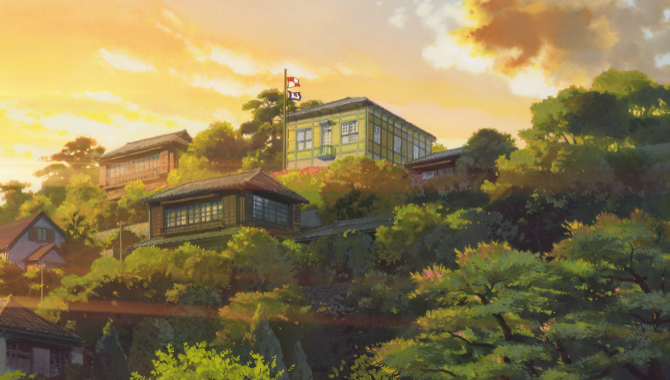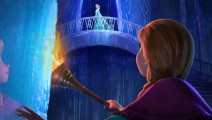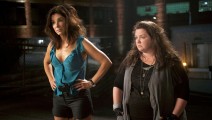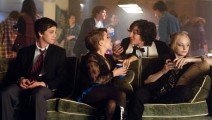film review: From Up on Poppy Hill (2013)
August 5, 2013 // No Comment
From Up on Poppy Hill is the latest from Japan’s answer to Walt Disney Studios, Studio Ghibli, and the second from Gorō Miyazaki, eldest son of the grand master of Ghibli, Hayao Miyazaki.
Now I haven’t seen Gorō’s first film, Tales of Earthsea, so I am coming to the Gorō’s work fresh. That said, I had heard that the film did not exactly live up to the rest of Ghibli’s output so I wasn’t expecting to see the same kind of curious, fantastical tale that you’d might expect from a Miyazaki.
Which is just as well. With From Up on Poppy Hill Gorō eschews the more supernatural stories that Western audiences have come to expect from Ghibli and presents an altogether more grounded tale of youthful exuberance and young romance in this coming-of-age story set in Yokohama in the early 1960s.
Just because the story strays away from the usual Ghibli films that make it over here, doesn’t mean it’s entirely divorced from the stable. Poppy Hill is a beautiful film; in terms of animation and illustration it has all the elements we’ve come to expect from the leading Japanese animation studio – highly detailed city backgrounds which perfectly marry with the action in the foreground, landscapes with a touch of dreamy romanticism that evoke the bustling life they belie – Poppy Hill reminds us that Ghibli is still a world leader in animation.
This soft animation style keeps with the tone of the story. It’s a gentle, nostaligic film, harkening back to an innocent time. 20 years on from the end of the war, Japan is preparing to host the Olympics and the film presents and undoubtedly authentic sense of optimism from the post-war generation of young people the film centres on. It sweeps us through a (mostly) standard girl meets boy story with affable and pleasing ease and manages to keep the parallels between our couple’s story and the re-building of post-war Japan subtle enough to let the story unfold naturally.
Sadly though, the film isn’t without its flaws. This being early ’60s Japan, the spectre of the war is of course apparent and forms the basis for one of the strands of the story – however, for me, the film never quite manages to balance that particular strand with the rest of the film. It feels… tagged on… because a story set in this time would have to have a more obviously war element to it…
… which feels slightly unfair… because a story set in this time probably would have to have a more obvious war element to it. The problem is that it doesn’t managed to knit that part of the story into the rest of the film. Where they allow the nation-building parallel to develop as part of the story, this direct effect of the war is a curveball, coming from nowhere and disappearing in an unconvincing conclusion. It’s an unfortunate mis-step in an otherwise pleasantly understated yarn.
All this said though, fans of the better know Ghibli films like Spirited Away and Howl’s Moving Castle are likely to be disappointed by this departure from the supernatural. While Japanese audiences may have embraced the nostalgia, Western audiences may find it a little too removed to be compelling cinema viewing.
One more for fans of the Ghibli style rather than the substance.
6.5/10







No Comments